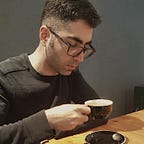A Neuroscientist’s Spiritual Autobiography
Review of Piercing the Cloud: Encountering the Real Me by Jaime Pineda. BookBaby 2020
Piercing the Cloud: Encountering the Real Me is the autobiography of Jaime A. Pineda (b. 1953), professor emeritus of cognitive neuroscience at University of California, San Diego. The book begins with Pineda’s recollection of his childhood memories in Honduras and continues up to the present day. We read about his family, his move to the United States as a young boy, the strict discipline he acquired from his grandmother, his time in the United States Air Force, his travels in Europe, his academic life as a student and then as a professor, his persistent concerns with identity, his two marriages, and his reflections on science and spirituality. The book is an interesting document about a life and the particular times and places associated with that life.
Readers interested in an insider’s view of academia and of a lifetime of research in cognitive neuroscience might find much relevant material in this book. We read not only about research questions, methods, and discoveries, but also about the researcher’s practical career concerns, self-image, competition over limited resources, and other issues surrounding an academic life. With this book, we also have an example of what can happen when a scientifically trained writing style turns toward the personal aim of writing an autobiography. It is difficult for a writing voice that is formed and regulated within academic institutions, in the service of impersonal and technical (including self-promotional) goals, to achieve the requirements of an intimate autobiography. In this regard, Pineda’s success is limited. His voice is appropriate for a series of technical report on research findings. The writing is clear, to be sure, but it does not transport us into the author’s world. We see reports of events far more frequently than we see the events themselves.
A central theme of the book is identity, at times expressed as an insecurity and an intense preoccupation with the author’s self-image. The question of identity is intertwined with almost every other topic in the book, including immigration, race, science, religion, and marriage. Pineda attempts to draw self-judgment from each topic, each life event, each line of thought, as if constantly responding to the question: What does this say about me?
To varying degrees, we are all prone to overestimating our uniqueness as individuals, seeing ourselves as the center of the world, and interpreting events exclusively in terms of their relevance to us. These tendencies can render us susceptible to believing in supernatural accounts of our lives. Pineda embraces these accounts. When reflecting on seemingly improbably events of his life, he writes: “… an explanation based on chance and coincidences isn’t satisfactory to me any longer.” Reading these passages, I was reminded of Spinoza’s warnings against mistaking our imagination for understanding. Even if we consider the supernatural, it requires an extra step to believe the supernatural forces serve our human interests and that, in essence, we live in a human-centered universe.
We might not always agree with Pineda, particularly with his views on spirituality, but he writes in the spirit of honesty. He teaches us that, despite what we might think, it’s possible for a set of diverse beliefs to co-exist in a single mind (e.g., it is possible for a neuroscientist to believe in numerology). He is willing to admit mistakes and does not always insist on creating a positive self-image. Arguably the most troubling part of the book is the unfair treatment of non-human animals in research. It took Pineda years to finally switch from invasive research with animals to non-invasive research with humans. Sadly, it appears that the switch was not motivated on ethical grounds, but by the inconvenient distance between the department and the laboratory space, in addition to — again, an inconvenience caused by — the persistent protests of animal-rights activists on his campus.
A careful reader would be puzzled by whether and how spirituality, a theme that runs through the entire book, has impacted Pineda’s decisions. Is Zen Buddhism a form of life and a commitment, or is it a safety valve, an anesthetic, that is meant to sustain an essentially non-spiritual life? Reading about Pineda’s conversation with his Zen teacher about his anxieties related to his upcoming tenure review, we get a strong impression that Zen Buddhism is being subservient not to human flourishing, but to a career-oriented mindset. A hobby-horse spirituality does not only fail to challenge the status quo of scientism, consumerism, careerism, and so, it even helps prolonging them. Such a spirituality is a neatly compartmentalized, and thus largely inconsequential, type of pastime.
In contrast to his personal and somewhat self-centered approach to spirituality, Pineda’s discontent with science is completely impersonal. His intuitive dissatisfaction with science, which never develops into a full-fledged critique, is presented as a problem with science itself, not how one person, or one group of people, engage with science. We are not presented with the distinction between science in general and this particular approach to science. Careful readers will have to imagine an alternative scenario, in which an author would express his dissatisfactions not in terms of science per se, but in terms of his own decisions, something over which he could claim responsibility. What is science, after all, without the active role of scientists? Imagining that alternative scenario, we ought to wonder what else would be different about the autobiography?
Note: I received a review copy of this book through Reedsy.com/Discovery my review on that website can be found here: https://reedsy.com/discovery/book/piercing-the-cloud-encountering-the-real-me-jaime-pineda-651cd021-16f2-4cf7-ab60-5363e689dbaa#review
